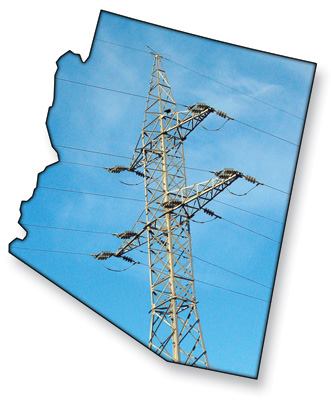Industry members, as well as the general public, are taking exception to Arizona’s new pool and spa energy standards.
In recent weeks, local talk shows and radio programs have hosted impassioned debates on the state’s Pool Pump and Portable Spa Energy Efficiency Standards, which will require two-speed, multispeed or variable-speed pumps on all residential installations with pump sizes more than 1hp.
“People think this legislation is ridiculous,” said Paul Christopulos, owner of PC Pool Care in Scottsdale, Ariz. “How can customers who can barely pay their mortgages afford to spend $1,400 on a new pump? This is going to turn us and our clients into criminals.”
The standards are scheduled to go into effect Jan. 1, 2012.
Criticism of the legislation focuses mainly on two points: First, the standards will require consumers to purchase pricey, energy-efficient upgrades for any pumps they replace. Second, the state appears to have very little enforcement planned, meaning single-speed pumps still will be available for purchase, and service technicians willing to skirt the law and install them are likely to draw customers away from rule-abiding pool professionals.
This second complaint echoes similar resentment over Title 20 of the California Code of Regulations, which has required residential pumps in that state to be either two-, multi- or variable-speed since 2006. Lack of Title 20 enforcement has allowed unscrupulous California techs to undercut lawful job bids and gain market share, according to some service professionals.
“When I talk to my counterparts in California, they tell me that probably 80 to 85 percent of techs are still putting in single-speed pumps despite Title 20 because there’s no enforcement,” said Kurt Schuster, director of the Independent Pool & Spa Service Association’s Arizona/Nevada region.
Even so, supporters of pool energy legislation maintain that laws of this nature benefit consumers and the industry in the long run. “These regulations aren’t about forcing anyone to do anything,” said Michael Orr, executive director of the Sacramento, Calif.-based Foundation for Pool & Spa Industry Education. “What they do is set up criteria for builders of new pools and people who are retrofitting existing systems, telling them to put in a pump that will pay them back through energy savings.”
Though critics of Arizona’s legislation acknowledge that energy-efficient pumps are solid investments that also benefit the environment, they don’t necessarily agree that these benefits are as immediate as the law’s supporters claim.
“When you look at Arizona’s electricity costs and examine how much this is actually going to save our consumers, the math just doesn’t make a whole lot of sense,” Schuster said. “And anyway, by that logic, why not start with air conditioners? Those consume more electricity than pool pumps do.”
In addition, pump upgrades often entail more than a straight swap, Christopulos noted. “The reality just isn’t that simple,” he said. “For instance, if the customer has an old automation system, they have to pay to upgrade their entire board.”
Still, proponents insist this kind of change is ultimately beneficial, and inevitable. “We all have to live on this planet together,” Orr said. “We need to work together, and take some positive steps to maximize our energy savings.”




